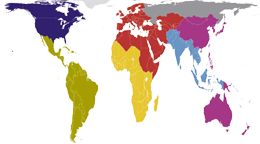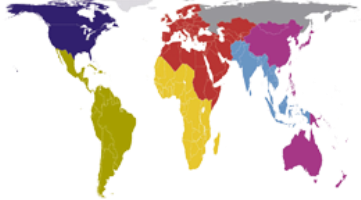Africa: The Next Epicenter of the COVID-19 Pandemic?
United Church of Christ – Wider Church Ministries
Humanitarian Development Team
Coronavirus (COVID-19) Daily Briefing
Barbara T. Baylor, MPH – Temporary Health Liaison
Africa: The Next Epicent er of the COVID-19 Pandemic?
er of the COVID-19 Pandemic?
The World Health Organization (WHO) has warned that Africa, the world’s second-largest continent with a population of 1.3 billion people, is poised to potentially become the next epicenter of the highly infectious and deadly COVID-19 disease.
As of May 14, the African Centres for Disease Prevention and Control have reported 73,176 confirmed infections, 2,496 fatalities and 25,462 recoveries. Fatalities include the former President of the Republic of the Congo and Somalia’s former Prime Minister.
Experts warn fragile healthcare systems in many African countries could be overwhelmed in the face of a severe outbreak of COVID-19.
Millions of people in Africa live just on or just above the poverty line. Poverty exacerbates the known challenges Africa has, including health care systems that are ill equipped to treat patients without support from international organizations, and lack of information and resources to tell citizens what precautions they should take to stave off the virus, such as washing their hands for 20 seconds or keeping six feet apart. And millions on the continent, mainly in the east and south, already suffer from other complications such as HIV/AIDS that could make them more vulnerable to a COVID-19.
This virus does not discriminate. Every race, gender, faith, ethnicity, and nation has experienced illness and death as a result. The African continent is extremely vulnerable to a large-scale outbreak. No one is immune.
Following is an update from Global Ministries, a joint witness of the Christian Church (Disciples of Christ) and the United Church of Christ. Global Ministries works with approximately 290 faith-based international partners in close to 90 countries.
Africa
The World Health Organization recommends regular hand washing and physical distancing for curbing and stopping the spread of COVID-19. What if you live in a densely populated community or in a village that does not have access to clean water?
This is the reality for countless sub-Saharan African communities, especially those in rural areas. According to the World Bank, 75% of people in sub-Saharan Africa living in rural areas lack adequate facilities for handwashing. These same communities have, for several years, experienced droughts as a result of climate change and lack access to clean water because of poor infrastructure.
For example, for several years, South Africans have experienced a water shortage across the country caused by urbanization, deforestation, and the destruction of wetlands. Urban and wealthier communities have been able to mitigate the shortfall, while populations in the poor, mostly rural, townships have been negatively impacted. Squatter communities often go weeks without access to water. How will people living in these communities protect themselves against this pandemic?
Will physical distancing protect them? Most African nations are imposing stay-at-home or lockdown orders. These mandates are limiting movements to grocery shopping and medical appointments. Restricting people’s movement is helpful for some nations but it is not practical in many African countries. It is nearly impossible for women in rural Africa to stay home for extended periods.
Most women sustain their families by operating informal shops that sell local produce and other household items. If they are unable to work their “shops,” their families become increasingly vulnerable to food insecurity and malnourishment. Also, refrigeration is a challenge because of the lack of electricity. Therefore, women must go to the market every day to purchase food for their families. These markets are often very dense and crowded, increasing their risk of contracting COVID-19.
COVID-19 has exposed global inequalities and disparities, especially in sub-Saharan Africa. Hand washing and physical distancing are privileges denied to countless communities in Africa. The realities of climate change and economic inequalities are having a significant impact on African societies during the COVID-19 pandemic.
See also:
COVID-19 Africa Area Update – includes a video update
Related News
Planning for Earth Month: Resources for Congregations
April is Earth Month, and for congregations, it can be a great time to further discern how...
Read MoreBodily Autonomy Means Every-BODY
Advocacy and Action for Women's and Gender Justice Local events stir thoughts and...
Read MoreAn ally experiences PRIDE in the CLE
Advocacy and Action for Women's and Gender Justice Local events stir thoughts and...
Read More


